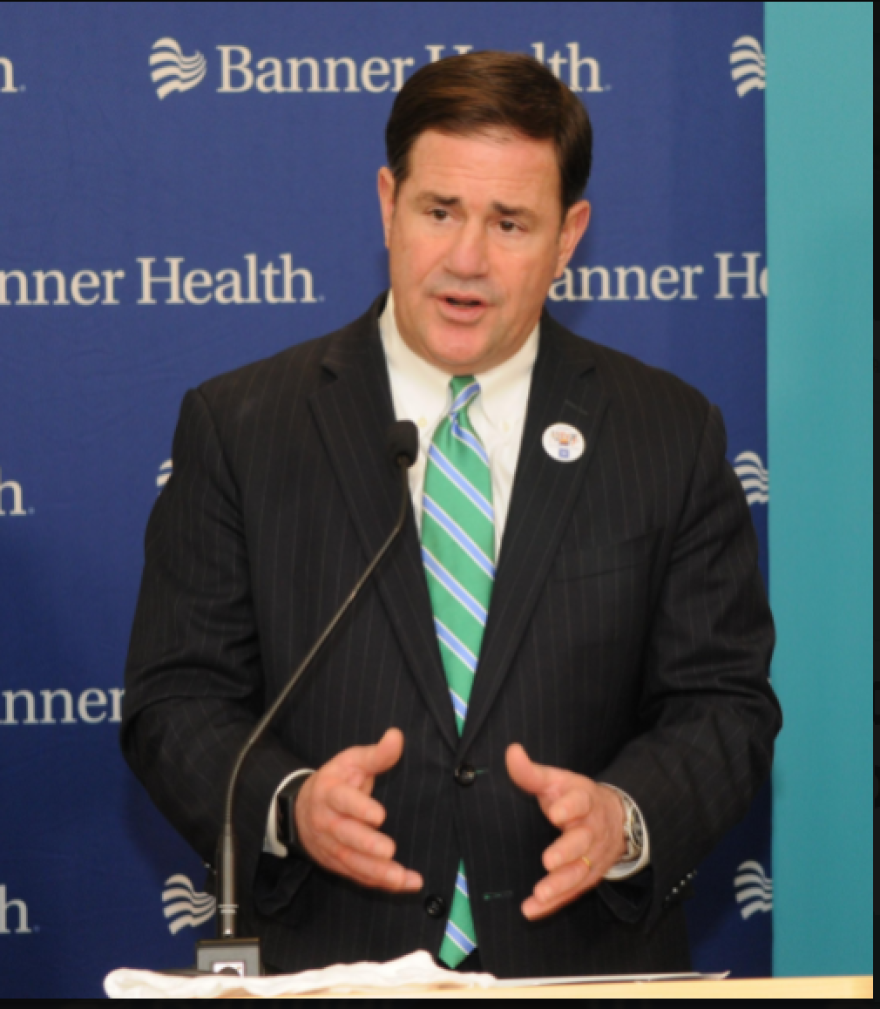By Howard Fischer
Capitol Media Services
PHOENIX -- A new executive order by Gov. Doug Ducey on "essential services'' appears less designed to empower him to force people to stay home than to preclude Arizona cities from once again getting out in front of him on actions to slow the spread of COVID-19.
When the governor announced the order on Monday he said he did not intend to issue stay-at-home orders "at this time.'' Instead he described it as a move to "provide clarity'' so that "people in these situations can plan ahead.''
But the actual verbiage of the order -- not made available until after Ducey's press conference -- paints a far different picture, forbidding any county, city or town from making "any order, rule or regulation'' that prohibits anyone from perform any function that he, his healthy department or his Division of Emergency Management designated as an "essential function'' during the pandemic public health emergency.
And to drive home the point, it says that any order by a local government restricting people from leaving their home during the emergency "shall be consistent with advice from the Arizona Department of Health Services. It also says that any order must be "coordinated with the state prior to issuance.''
It was officials from Tucson, Phoenix and Flagstaff that instituted the first bans on people gathering at bars and a prohibition on in-restaurant dining. It was only later, after insisting he would not do it, that Ducey followed suit with a similar order, but only for those counties where there have been confirmed cases of the virus.
And the governor's list of what he considers essential -- and off-limits to local restrictions -- is very broad, ranging not just from traditional health and public services to payday lenders and pawnbrokers to golf courses and the sale of firearms and ammunition.
The move drew an angry reaction from Rep. Isela Blanc, D-Tempe, whose own city also has acted, on its own, to shutter bars and allow only take-out food.
"I'm concerned that we have city mayors that are leading on this issue and being more responsible than the governor in dealing with this,'' she told Capitol Media Services.
"We are dealing with a worldwide pandemic that could be fatal,'' Blanc said. "But the state isn't willing to take necessary precautions to keep the health system from being overwhelmed.''
She's not alone in her concerns.
In a letter Tuesday to the governor, the mayors Tucson, Flagstaff, Tolleson, Somerton and Winslow said his order is "too broad'' in its definition of essential services that cities cannot shutter, specifically citing the inclusion of payday lenders and golf courses.
Tucson Mayor Regina Romero told Capitol Media Services the problems are even deeper than that.
Consider, she said, Ducey's order preempting local governments from closing parks.
In his order, the governor said he was focused on areas that provide "opportunities for outdoor recreation with social distancing.'' But Romero said it's not that simple.
"Cities are concerned about cleaning bathrooms, all the details that we have to think about in terms of logistics to keep it clean for our community,'' she said. Ditto the playground equipment for children.
Romero also said she could live within the governor's directive if he removed certain items from his "essential list.'' That includes personal hygiene.
"Does this cover nail salons? Hair salons? Massage and spa services? Barber shops?'' she asked.
"That's concerning because that has people less than one foot away from each other.''
And it could come to a point, Romero said, where the city will have to look at charting its own path, with or without Ducey.
"I am trying to be cooperative and have good partnership with the governor's office,'' she said.
"But, at the same time, I have to make the call along with my city manager, my city attorney, with scientific information we have in front of us,'' she continued. "And I have to be able to make swift calls for the health and benefit of Tucson and Tucsonans.''
In a prepared statement, gubernatorial press aide Patrick Ptak defended the the governor's preemption.
"This order is about protecting public health and preserving critical financial lifelines for many communities across the state,'' he said. "It also ensures one uniform policy throughout Arizona so businesses and citizens can responsibly plan.''
The governor's bid to restrain cities has the support of Glenn Hamer, president of the Arizona Chamber of Commerce and Industry.
"The Arizona economy right now is already in a deep recession, probably in a depression, as is the case with the economy in the 49 other states,'' he told Capitol Media Services.
"We want to keep the maximum amount of commerce open that we possibly can consistent with CDC and Arizona Department of Health guidelines,'' Hamer said. "It was very important for the governor to get out ahead of this proactively because there is a lot of concern among businesses of all kinds in this state whether or not they're going to be allowed to continue to operate in this environment where things are evolving by the nanosecond.''
Hamer said that the governor's list probably should be thought of less as what services are essential and more as a list of businesses that can be safely operated without the spread of the disease. That, he said, is where something like golf courses fit in, enabling people to get out and "get their 10,000 steps'' a day with minimal risk of contagion.
-30-
On Twitter: @azcapmedia







